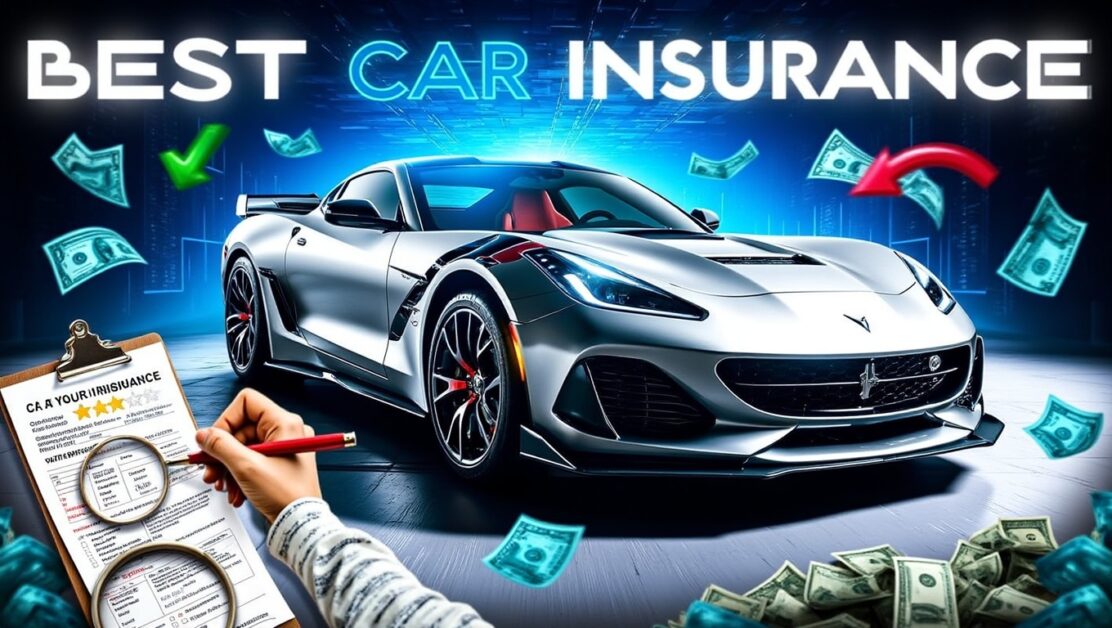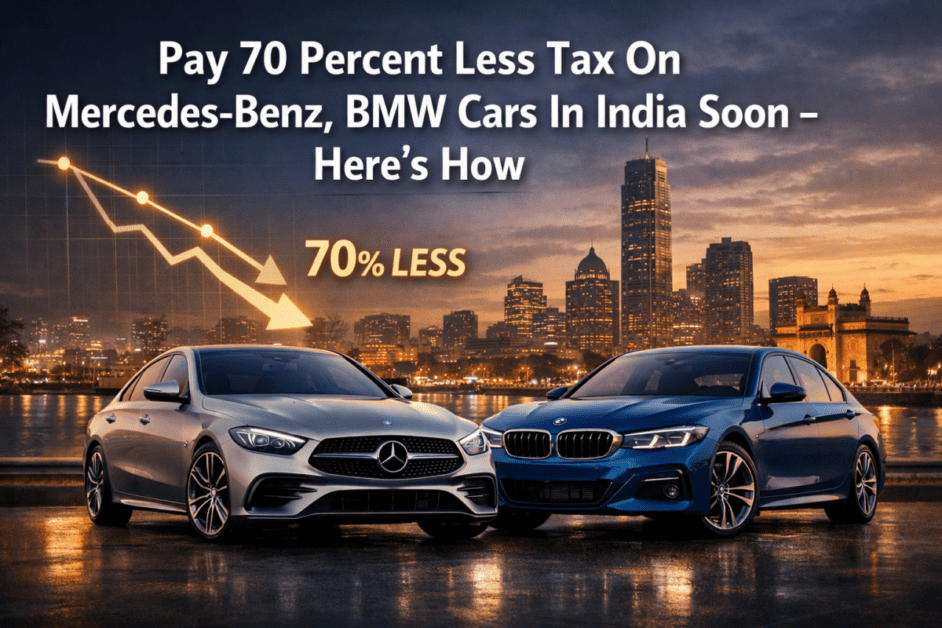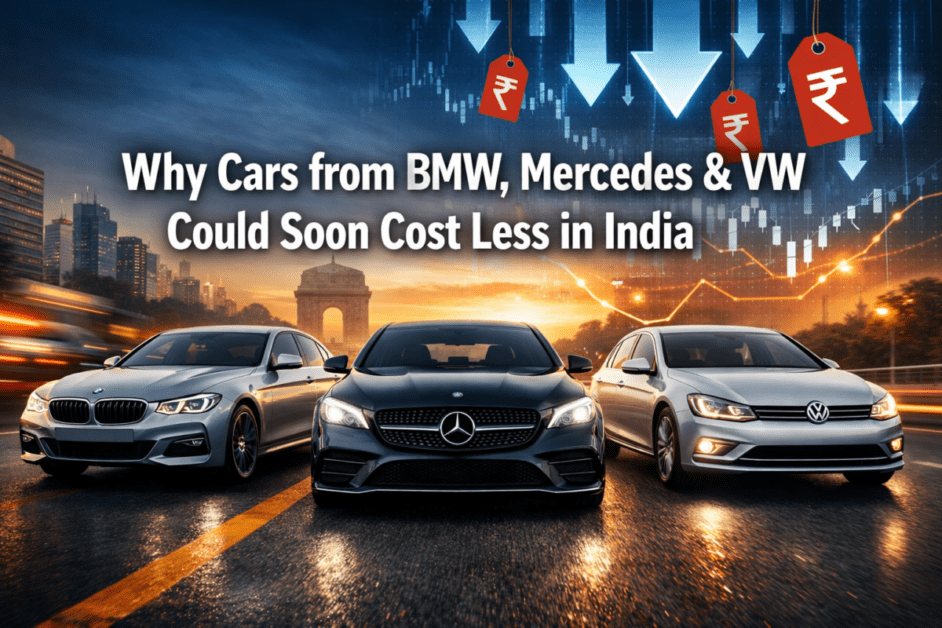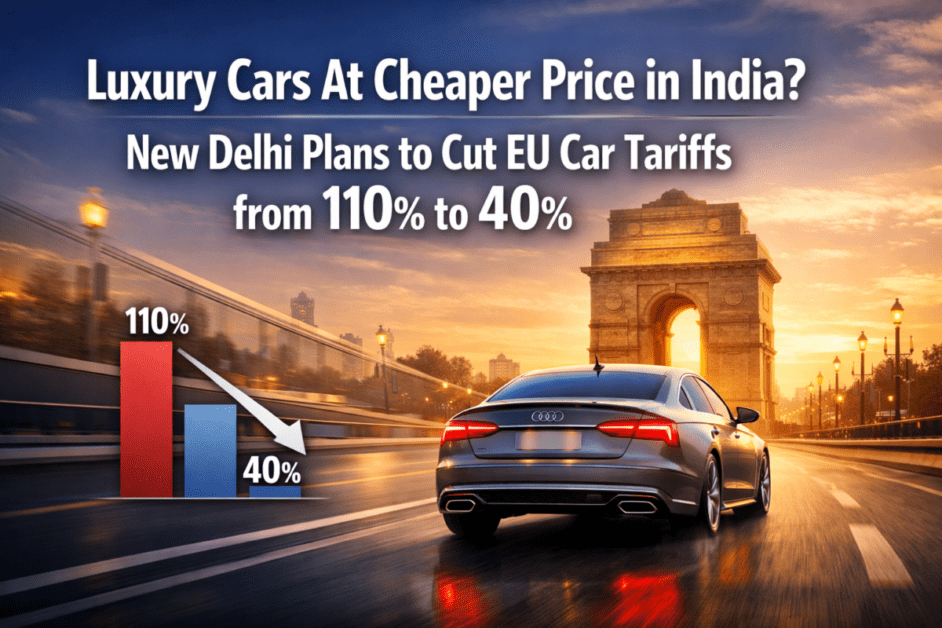As someone who’s navigated the maze of car insurance policies myself, I know how confusing it can get. There are so many insurance companies, so many insurance plans, and everyone promises to offer the best car insurance. My goal with this comprehensive guide is to cut through the jargon and help you understand everything you need to know about car insurance in India, so you can make an informed decision and protect your precious ride. Let’s dive in and find the perfect car insurance policy online for you!
Hey there, fellow car owners! Have you ever thought about what would happen if your beloved car got into an unexpected fender bender? Or worse, a major accident? The costs can be staggering, not just for fixing your own car but also for any damage you might cause to someone else’s property or, heaven forbid, injuries to people. That’s where car insurance in India steps in – it’s not just a legal requirement, it’s your financial superhero!
Key Takeaways
- Mandatory Protection: In India, having
third-party car insuranceis a must, legally speaking. It covers damages you might cause to others. - Comprehensive Coverage is King: While third-party is basic, a
comprehensive car insurance policyoffers much wider protection for your own car too, against accidents, theft, and natural disasters. - Compare and Save: Don’t just pick the first option! Always compare
car insurance plansfrom differentinsurance companiesto find thebest car insuranceat a goodcar insurance premium. - Claim Settlement Ratio Matters: Look for
insurance providerswith a highclaim settlement ratio. This tells you how likely they are to pay out yourcar insurance claimsmoothly and quickly. - Online is Easy: Buying or
renewing car insurance onlineis super convenient, often cheaper, and you candownload your car insurance policyinstantly.
Best Car Insurance Companies in India: A Roundup of the Best! 🏆
Now, for the part you’ve been waiting for! Choosing the best car insurance in India can feel like a big decision. I’ve researched some of the leading insurance companies that consistently rank high in customer satisfaction, claim settlement ratio, and range of car insurance plans. Remember, the “best” often depends on your specific insurance needs, so consider what matters most to you.
Here are some of the best car insurance companies in India:
1. HDFC ERGO General Insurance
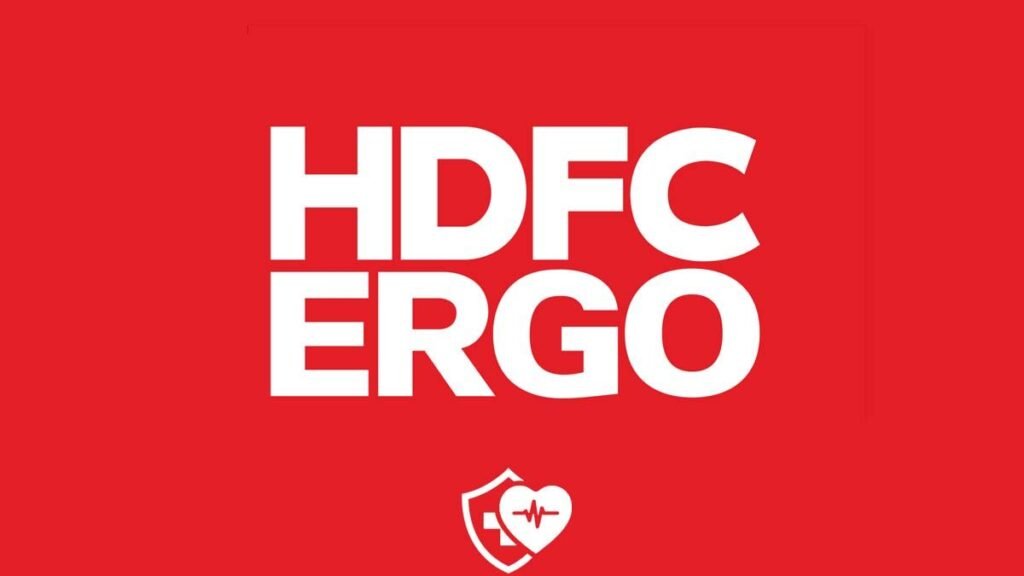
HDFC ERGO is a very popular choice among car owners. They are known for their strong financial backing and a wide network of cashless garages.
- Key Features:
- High Claim Settlement Ratio: They generally have a good
claim settlement ratio, which means yourcar insurance claimis likely to be processed smoothly. - Wide Network: A vast network of cashless garages across India, making it easy to
get your car repairedwithout upfront payment. - Add-ons: Offers a comprehensive list of add-on covers like
zero depreciation car insurance, roadside assistance, engine protection, and more, allowing you to tailor yourcar insurance policy providesspecificinsurance cover. - Online Convenience: Easy to
buy car insurance onlineandrenew your car insurance onlinewith a quick process.
- High Claim Settlement Ratio: They generally have a good
- Why I like them: Their reliability and strong customer service make them a solid choice for any
car ownerlooking for dependablecar insurance policies. Their focus on efficientclaim settlementis a big plus.
2. ICICI Lombard General Insurance
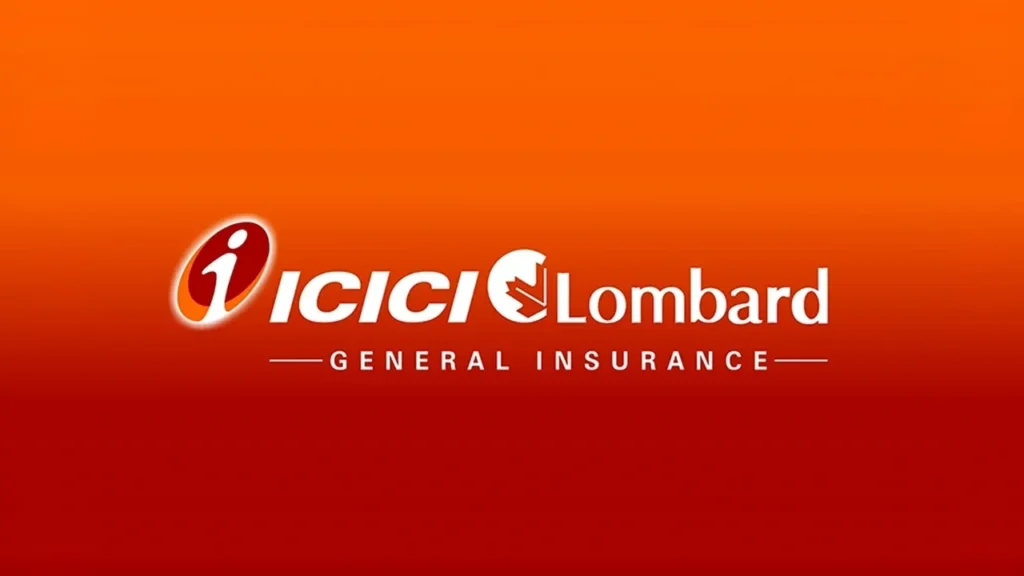
ICICI Lombard is another giant in the Indian general insurance sector. They are known for their innovative car insurance plans and quick digital processes.
- Key Features:
- Digital-First Approach: Excellent online platform for
purchasing a car insurancepolicy,renewing car insurance, and managingcar insurance claims. You candownload your car insurance policyinstantly. - Good Claim Settlement: They maintain a competitive
claim settlement ratio. - Bumper-to-Bumper Cover: Their
zero depreciation car insuranceis very popular, ensuring maximum payout for repairs without factoring in depreciation. - Roadside Assistance: A very useful add-on that provides help in case of breakdowns, flat tires, or running out of fuel.
- Digital-First Approach: Excellent online platform for
- Why I like them: If you prefer a seamless
online car insuranceexperience and a variety ofinsurance planswith useful add-ons, ICICI Lombard is definitely worth considering. They makebuying a car insurancepolicy straightforward.
3. Bajaj Allianz General Insurance
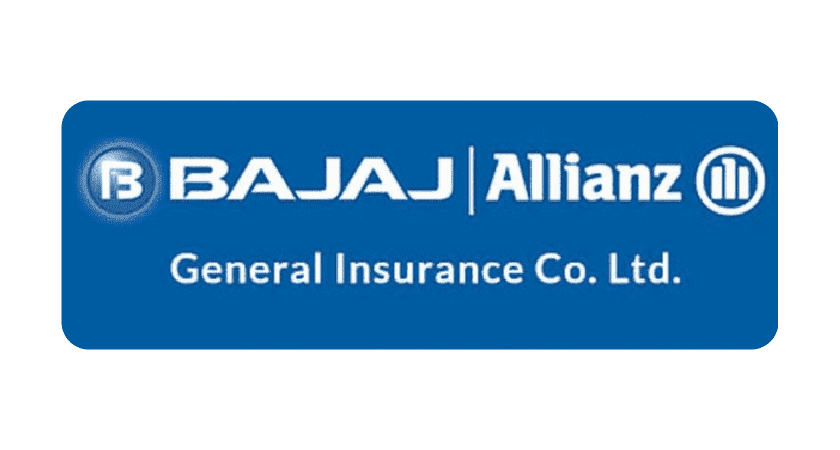
Bajaj Allianz is a trusted name, offering a range of motor insurance policy options that cater to different insurance needs.
- Key Features:
- Customizable Plans: They allow a lot of flexibility in choosing
car insurance policiesand add-ons to suit your specific requirements and budget. - Good Customer Support: Known for responsive customer service, which is crucial when you need help with a
car insurance claim. - Quick Policy Issuance: You can
buy a car insurance policyquickly anddownload your car insurance policy documentswithout hassle. - Cashless Garage Network: A wide network for cashless repairs, making the
claim settlementprocess smoother.
- Customizable Plans: They allow a lot of flexibility in choosing
- Why I like them: Bajaj Allianz offers a good balance of affordable premiums and comprehensive
insurance cover. Their straightforward approach tocar insurance policiesmakes them a reliable partner.
4. Acko General Insurance

Acko is a relatively newer player but has quickly gained popularity due to its completely digital, hassle-free approach and often lower premiums.
- Key Features:
- Online Only: Acko operates almost entirely online, which helps them keep their overheads low and pass on the savings to customers through competitive
car insurance premiums. - Instant Claims: For minor damages, they often offer instant
claim settlementthrough their app, which is a huge convenience. - No Paperwork: Everything is digital, from
purchasing a carinsurance policy toclaim during the policy period. - Unique Add-ons: They offer some interesting add-ons like outstation breakdown assistance and consumable cover.
- Online Only: Acko operates almost entirely online, which helps them keep their overheads low and pass on the savings to customers through competitive
- Why I like them: If you’re tech-savvy and prefer a fully digital experience with potentially lower
insurance premiums, Acko is an excellent choice. Their focus on quick and easyclaim settlementis a game-changer.
5. Digit Insurance (Go Digit General Insurance)
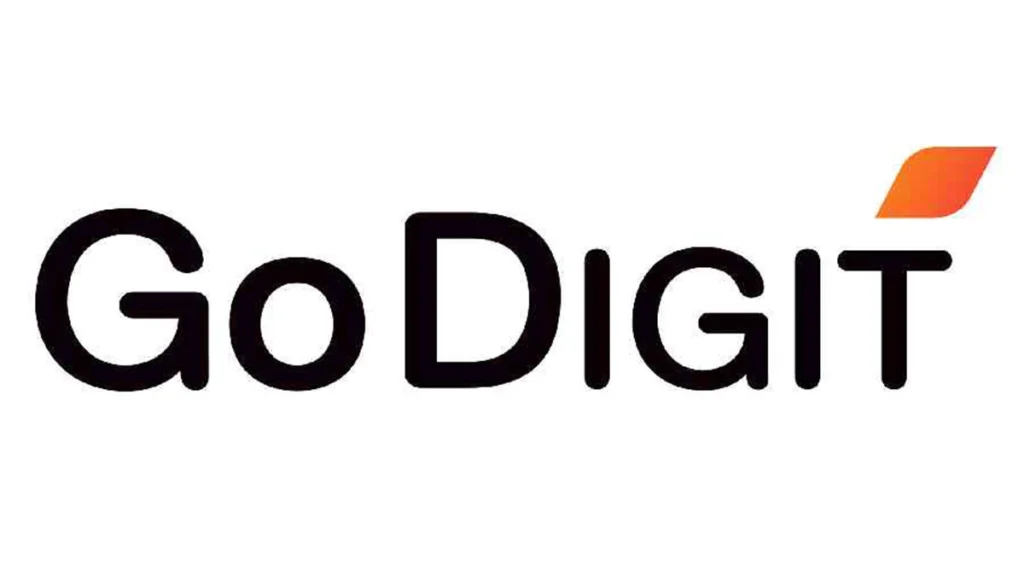
Digit has made a significant impact with its customer-centric approach and use of technology to simplify insurance.
- Key Features:
- Smartphone-Enabled Self-Inspection: Their claim process is often simplified by allowing you to take photos of the damage on your smartphone for self-inspection.
- High Claim Settlement Ratio: They boast a very high
claim settlement ratio, giving confidence to policyholders. - Paperless Process: Like Acko, they focus on a completely paperless experience, making
buying a car insuranceandrenewing car insurance onlinevery simple. - Customizable Plans: Offers a range of add-ons to enhance your
car insurance coverage, includingzero depreciation car insuranceand return to invoice.
- Why I like them: Digit is great for those who value modern, tech-driven solutions and a smooth
claim settlementexperience. They are makingcar insurance in Indiamore accessible and user-friendly.
“When picking an
insurance company, don’t just look at the price. A highclaim settlement ratioand good customer service are priceless when you actually need them!”
Why Car Insurance is a Must-Have in India: More Than Just a Rule!
Imagine this: You’re driving your private car on a busy Indian road. Suddenly, a scooter swerves, and you can’t avoid it. Boom! Thankfully, no one is seriously hurt, but your car has a dent, and the scooter is damaged. Who pays for all this? Without vehicle insurance, you’d be digging deep into your savings. This is exactly why car insurance is mandatory in India.
Every car owner needs to have at least a third-party car insurance policy. This basic motor insurance policy covers any financial liability arising from damage or injury you might cause to a third person or their property. It’s regulated by the Insurance Regulatory and Development Authority of India (IRDAI), ensuring everyone on the road has some level of protection.
But let’s be real, third-party insurance is just the bare minimum. It protects others from you, but what about your car? What if it gets stolen? What if a tree falls on it during a storm? That’s where more robust car insurance policies come into play. Having the right insurance cover gives you immense peace of mind. It means that if something bad happens, you won’t face a massive financial shock. It’s like having a safety net for your wallet!
“Car insurance isn’t just a piece of paper; it’s a promise that when things go wrong, you won’t have to face the financial burden alone.”
Understanding Different Types of Car Insurance Policies
When you start looking for car insurance policies, you’ll quickly realize there’s more than one type of car insurance. Knowing the differences is key to choosing the right car insurance policy for your four-wheeler insurance needs.
Let’s break down the main type of car insurance policy options available:
1. Third-Party Car Insurance Policy (TP)
As I mentioned, this is the most basic and legally required vehicle insurance in India.
- What it covers: It covers damages, injuries, or death caused by your
insured carto a third party or their property. - What it doesn’t cover: It does not cover any damage to your own car. If your car gets damaged in an accident, you’ll have to pay for the repairs yourself.
- Who it’s for: This is ideal if you’re on a very tight budget or if you have an old car with minimal value, and you’re willing to take the risk of paying for your own car’s repairs.
2. Standalone Own-Damage Car Insurance (OD)
This type of insurance is designed to cover damages to your own private car. You can’t buy this on its own if you don’t already have a third-party policy, as third-party is mandatory. However, if you already have a third-party car insurance policy, you can purchase this separately.
- What it covers: Damages caused to your car due to accidents, fire, theft, natural calamities (like floods, earthquakes), and man-made calamities (like riots, vandalism).
- Who it’s for: If you already have
third-party car insuranceand want to protect your own car without buying a full comprehensive plan, this is an option.
3. Comprehensive Car Insurance Policy
This is by far the most popular and recommended car insurance policy online for most car owners. It’s like the superhero of car insurance policies because it combines both third-party car insurance and own-damage car insurance into one convenient package.
- What it covers:
- Damage to your own car (from accidents, theft, fire, natural disasters, etc.)
- Liability for damages/injuries/death caused to a third party.
- Who it’s for: Every
car ownerwho wants complete peace of mind and full protection for theirinsured car. If you have anew caror a relatively expensive one, I highly recommend youopt for comprehensive car insurance.
Here’s a quick table to help you compare these car insurance plans:
| Feature | Third-Party Car Insurance | Standalone Own-Damage Car Insurance | Comprehensive Car Insurance Policy |
|---|---|---|---|
| Covers Damage to Your Car? | ❌ No | ✅ Yes | ✅ Yes |
| Covers Third-Party Liability? | ✅ Yes | ❌ No | ✅ Yes |
| Legally Mandatory? | ✅ Yes | ❌ No (but advisable) | ❌ No (but highly recommended) |
| Theft Coverage? | ❌ No | ✅ Yes | ✅ Yes |
| Fire Coverage? | ❌ No | ✅ Yes | ✅ Yes |
| Natural Disasters? | ❌ No | ✅ Yes | ✅ Yes |
| Cost | Lowest | Moderate | Highest (but best value) |
Factors Affecting Your Car Insurance Premium
When you’re looking to buy a car insurance policy or renew your car insurance, you’ll notice that the car insurance premium can vary quite a bit. What makes one insurance plan more expensive than another? Several factors influence the insurance premiums:
- Insured Declared Value (IDV): This is the current market value of your car. It’s the maximum amount your
insurance company will payif your car is stolen or totally damaged beyond repair. A highervalue of your carmeans a highercar insurance premiumbecause theinsurance companyhas a larger risk. - Make, Model, and Variant of Your Car: Luxury cars or cars with expensive parts generally have higher
insurance premiums. Spare parts for certain models might be harder to find or more costly, impacting thecar insurance premium. - Age of Your Car: As your car gets older, its IDV decreases, which usually leads to lower
insurance premiumsfor the own-damage component. However, for anew car, the premium will be higher. - Type of Policy: As we discussed, a
comprehensive car insurance policywill always cost more thanthird-party insurancebecause it offers broaderinsurance cover. - Geographical Location: If you live in a city with high traffic, higher accident rates, or a higher risk of theft, your
car insurance premiummight be higher. - No Claim Bonus (NCB): This is a discount on your own-damage premium for not making any
car insurance claimin the previous policy year. It accumulates over time, rewarding safe drivers! - Voluntary Deductible: This is a small amount you agree to pay out of your own pocket during a
claim during the policy period. Opting for a higher voluntary deductible can lower yourcar insurance premium. - Add-ons Chosen: Adding extra covers like
zero depreciation car insuranceor roadside assistance will increase yourinsurance premiums. - Anti-Theft Devices: If your
insured carhas ARAI (Automotive Research Association of India) approved anti-theft devices, someinsurance companiesmight offer a discount on yourcar insurance premium.
Understanding these factors can help you use a car insurance premium calculator effectively and even find ways to reduce your insurance premiums.
How to Choose the Right Car Insurance Policy for You 🎯
With so many car insurance policies and insurance companies out there, choosing the right car insurance can feel overwhelming. Here’s my step-by-step guide to help you find the best car insurance policy for your needs:
- Assess Your Needs First:
- Car Age and Value: Do you have a
new caror an older one? For anew car, acomprehensive car insurance planwithzero depreciation car insuranceis highly recommended. For an older car,third-party car insurancemight suffice if you’re on a budget, but comprehensive is always better for peace of mind. - Driving Habits: Do you drive frequently or rarely? Do you drive in heavy traffic or mostly on highways? More driving generally means more risk, so consider better
car insurance coverage. - Budget: How much
car insurance premiumare you comfortable paying? Remember, cheaper isn’t always better if it means lessinsurance cover.
- Car Age and Value: Do you have a
- Compare
Car Insurance PoliciesOnline:- This is crucial! Don’t just go with your existing
insurance provideror the first one you see. Use online comparison portals. These platforms allow you to comparecar insurance plansfrom multipleinsurance companiesside-by-side. You can easily comparecar insurance premiums,insurance coverages, and add-ons. - Look at the
claim settlement ratioof eachinsurance company. A higher ratio (above 90%) generally indicates a more reliableinsurance provider. TheInsurance Regulatory and Development Authority of India(IRDAI) publishes these ratios annually. - Check their network of cashless garages. A larger network means more convenience when you
get your car repaired.
- This is crucial! Don’t just go with your existing
- Understand the Insured Declared Value (IDV):
- The IDV is the
market value of your car. Ensure it’s correctly declared. A lower IDV means a lowercar insurance premium, but also a lower payout if your car is stolen or totaled. Don’t try to artificially lower it to save a few bucks.
- The IDV is the
- Consider Add-ons Wisely:
- While add-ons increase your
car insurance premium, some are truly valuable. Zero Depreciation Car Insurance(Bumper-to-Bumper): This is a must fornew cars. It ensures that no depreciation is deducted from the value of parts replaced during acar insurance claim.- Roadside Assistance: Extremely helpful for breakdowns, flat tires, or minor repairs on the go.
- Engine Protection Cover: Crucial if you live in flood-prone areas, as it covers damage to the engine due to water ingress.
- Return to Invoice: If your car is stolen or totally damaged, this add-on ensures you get the original purchase price of your car, not just its depreciated IDV.
- While add-ons increase your
- Read the Fine Print:
- Before you
buy a car insurance policy, carefully read the policy document. Understand what’s covered and what’s excluded. Look for the terms and conditions related toclaim settlement.
- Before you
- Check Customer Reviews and Service:
- Online reviews can give you a good idea of an
insurance company‘s customer service andclaim settlementexperience. Acar insurance companythat is easy to reach and responsive can make a world of difference during a stressfulcar insurance claim.
- Online reviews can give you a good idea of an
Remember, the right car insurance isn’t just about the lowest car insurance premium; it’s about getting adequate car insurance coverage and reliable support when you need it most.
Navigating the Claim Settlement Process: What to Do When Disaster Strikes 💥
No one wants to make a car insurance claim, but knowing how the claim settlement process works can save you a lot of stress if you ever need to. Here’s a simplified guide:
- Inform Your
Insurance CompanyImmediately: As soon as an incident occurs, notify yourinsurance provider. Mostinsurance companieshave toll-free numbers or mobile apps for immediate reporting. Do this within 24-48 hours. - Lodge an FIR (if necessary): For major accidents, theft, or third-party damage, filing a First Information Report (FIR) at the nearest police station is crucial. Get a copy of the FIR.
- Do Not Move the Car (unless necessary): If possible, do not move your
insured carfrom the accident spot until theinsurance company‘s surveyor inspects it. Take clear photos and videos of the damage and the scene. - Arrange for Inspection: The
insurance companywill send a surveyor to assess thedamage to your car. Cooperate fully and provide all necessary information. - Submit Required Documents: You’ll need to submit several
car insurance policy documents, including:- Duly filled
car insurance claimform - Copy of your
car insurance policy documents - Copy of Registration Certificate (RC) of your car
- Copy of Driving License of the person driving at the time of accident
- FIR copy (if applicable)
- Original repair estimate and bills (for reimbursement claims)
- Duly filled
- Choose Your Garage:
- Cashless Claim: If you take your car to a garage within your
insurance company‘s cashless network, theinsurance company will paythe repair costs directly to the garage (minus your deductible and any non-covered items). This is usually the easiest option. - Reimbursement Claim: If you take your car to a non-network garage, you’ll have to pay for the repairs yourself and then seek reimbursement from the
insurance company. Make sure to keep all original bills and receipts.
- Cashless Claim: If you take your car to a garage within your
- Follow Up: Stay in touch with your
insurance companyand the garage for updates on yourcar insurance claim.
“A smooth
claim settlementprocess is the true test of a goodcar insurance policy. Always pick aninsurance companywith a proven track record.”
Buying and Renewing Car Insurance Online: Convenience at Your Fingertips 💻📱
Gone are the days of endless paperwork and visiting offices! Buying car insurance online or renewing car insurance online has become incredibly easy and efficient. Most insurance companies offer a seamless online experience.
Benefits of Online Car Insurance:
- Convenience: You can
buy or renew car insurancefrom the comfort of your home, any time of day or night. No need to visit agents or offices. - Comparison Made Easy: Online portals allow you to compare
car insurance policiesfrom variousinsurance companiesin minutes, helping you find thebest car insurancefor yourinsurance needs. - Cost-Effective:
Online car insuranceoften comes with lowerinsurance premiumsbecauseinsurance companiessave on agent commissions and operational costs. - Instant Policy Issuance: Once you make the payment, you can immediately
download your car insurance policyand receive it via email. This is especially useful if you need torenew your car insurance policyon time to avoid fines. - Transparency: All details about
car insurance coverage, terms, and conditions are clearly laid out online.
Steps to Buy Car Insurance Online or Renew Your Car Insurance Online:
- Visit the
Insurance Company‘s Website or a Comparison Portal: Choose where you want to buy yourcar insurance policy online. - Enter Car Details: Provide details like your car’s make, model, variant, registration year, and city. If
renewing car insurance, you’ll also need your previouscar insurance policydetails. - Choose Your
Car Insurance PolicyType: Select betweenthird-party car insurance,standalone own damage insurance, orcomprehensive insurance. - Select Add-ons: Pick any additional covers you want, like
zero depreciation car insurance, roadside assistance, etc. - Get Quotes: The platform will show you various
car insurance premiumquotes based on your selections. - Compare and Select: Review the
car insurance coverage,claim settlement ratio, andinsurance premiumsof differentcar insurance plans. - Make Payment: Pay securely online using debit card, credit card, or net banking.
- Receive Policy: Your
car insurance policywill be issued instantly and sent to your email. You can alsodownload your car insurance policy documentsdirectly.
It’s a straightforward process that empowers you to take control of your car insurance policy on time.
Essential Add-ons for Enhanced Protection: Boost Your Car Insurance Coverage! ✨
While a comprehensive car insurance policy offers broad insurance cover, certain situations might still leave you with out-of-pocket expenses. That’s where add-ons come in! These additional covers enhance your car insurance coverage for specific risks. Here are some of the most popular and useful ones:
Zero Depreciation Car Insurance(Bumper-to-Bumper Cover):- What it is: This is perhaps the most popular add-on, especially for a
new car. When you make acar insurance claimfor repairs, theinsurance companyusually deducts depreciation from the value of parts being replaced. Withzero depreciation car insurance, no depreciation is deducted, meaning you get the full cost of replacing parts. - Why it’s useful: It significantly reduces your out-of-pocket expenses during a
claim during the policy period, especially for plastic or metal parts.
- What it is: This is perhaps the most popular add-on, especially for a
- Roadside Assistance Cover:
- What it is: This add-on provides 24/7 assistance if your
insured carbreaks down on the road. Services include minor repairs, flat tire assistance, battery jump-start, fuel delivery, towing, and even taxi services if your car needs to be taken to a garage. - Why it’s useful: A lifesaver when you’re stranded, especially during long drives or in unfamiliar areas.
- What it is: This add-on provides 24/7 assistance if your
- Engine Protection Cover:
- What it is: A standard
car insurance policy coversdamage to the engine only if it’s caused by an accident. This add-on specifically covers damage to the engine and gearbox due to water ingress (e.g., during floods) or oil leakage, which are common but often excluded from basic policies. - Why it’s useful: Essential if you live in flood-prone areas or drive through waterlogged streets frequently.
- What it is: A standard
- Return to Invoice Cover:
- What it is: If your
insured caris stolen or suffers a total loss (damage beyond repair), a standardcar insurance policy providesyou with the IDV (Insured Declared Value). This add-on ensures that theinsurance company will payyou the original purchase price (invoice value) of your car, including registration and road tax, not just the depreciated IDV. - Why it’s useful: Provides maximum financial protection against total loss, especially for a
new car.
- What it is: If your
- Consumables Cover:
- What it is: During repairs, consumable items like engine oil, gearbox oil, nuts and bolts, screws, grease, clips, AC gas, etc., are used. A basic
car insurance policydoesn’t cover these. This add-on covers the cost of such consumables. - Why it’s useful: Reduces minor out-of-pocket expenses during repairs.
- What it is: During repairs, consumable items like engine oil, gearbox oil, nuts and bolts, screws, grease, clips, AC gas, etc., are used. A basic
- Key Protection Cover:
- What it is: Covers the cost of replacing or repairing your car keys if they are lost, stolen, or damaged. Modern car keys with immobilizers can be very expensive to replace.
- Why it’s useful: Saves you a significant amount if your high-tech car keys go missing.
When purchasing a car insurance policy, consider which of these add-ons truly align with your driving habits, car’s age, and local conditions. They can significantly enhance your car insurance coverage and provide a better plan for your car.
Tips for Saving on Your Car Insurance Premium 💰
While you want comprehensive insurance cover, everyone loves a good deal! Here are some smart ways to potentially lower your car insurance premium:
- Leverage Your No Claim Bonus (NCB): If you haven’t made a
claim during the policy period, you’ll earn an NCB discount on your own-damage premium. This can go up to 50% over five consecutive claim-free years! Always transfer your NCB whenrenewing car insuranceorpurchasing a carinsurance for anew car. - Opt for a Higher Voluntary Deductible: This is the amount you agree to pay out of pocket before the
insurance companysteps in for acar insurance claim. A higher deductible means a lower premium, but ensure you can comfortably afford that amount if acar insurance claimarises. - Install ARAI-Approved Anti-Theft Devices: Many
insurance companiesoffer discounts if yourinsured carhas approved security devices. - Drive Safely: Fewer accidents mean fewer claims, which means a higher NCB and potentially lower premiums over time.
- Compare
Car Insurance Online: As emphasized before, comparingcar insurance policiesfrom differentinsurance companiesis the easiest way to find competitive rates. Don’t settle for the first quote. - Avoid Small Claims: For very minor damages, sometimes it’s cheaper to pay for the repairs yourself rather than making a
car insurance claim. This helps preserve your NCB, leading to larger savings in the long run. - Renew on Time: Always
renew your car insurance policy on time. If your policy lapses, you might lose your NCB and have to go through a fresh inspection, which can be inconvenient and sometimes cost more.
Common Mistakes to Avoid When Buying Car Insurance ❌
To ensure you get the right car insurance policy and a smooth experience, steer clear of these common pitfalls:
- Buying Only
Third-Party Insurance: While mandatory, it leaves your own car completely unprotected. For most car owners, acomprehensive car insurance policyis a much safer bet. - Not Comparing Policies: This is a big one! Settling for the first quote or blindly
renewing car insurancewith the sameinsurance companywithout comparingcar insurance planscan cost you money and bettercar insurance coverage. - Under-declaring IDV: Lowering the IDV to get a cheaper
car insurance premiummight seem smart, but it means you’ll get a much smaller payout if your car is stolen or totaled. Ensure thevalue of your caris accurately reflected. - Ignoring
Claim Settlement Ratio: A lowclaim settlement ratiocan mean headaches and delays when you actually need to make acar insurance claim. Always check this crucial metric. - Overlooking Add-ons: Dismissing add-ons as unnecessary expenses can leave you vulnerable. Evaluate your
insurance needsand choose relevant add-ons likezero depreciation car insuranceor roadside assistance. - Not Reading the Fine Print: Always read the terms and conditions, exclusions, and deductibles of your
car insurance policy providesbeforepurchasing a car insurance. - Delaying Renewal: Letting your
car insurance policyexpire is a big no-no. Not only is it illegal to drive without validvehicle insurance, but you also lose your NCB and might face a penalty. Alwaysrenew your car insurance policy on time.
Understanding these points can save you from future regrets and ensure your car insurance policy protects you effectively. If you’re exploring ways to manage your finances or even considering new business ventures, understanding how different types of insurance and financial planning work can be incredibly beneficial. For instance, just as you research the best car insurance companies for your vehicle, you might also research the best hardware wallet for crypto to secure your digital assets, or explore digital dropshipping as a way to generate income online. It’s all about protecting your assets and making smart financial choices!
Car Insurance Premium Estimator
This simple tool helps you get a rough idea of your car insurance premium. Please note, this is an estimate and actual premiums will vary based on your specific car details, location, and chosen add-ons.
Car Insurance Premium Estimator
*This is a rough estimate. Actual premiums depend on many factors including specific model, location, add-ons, and insurer’s rates.
Conclusion: Drive with Confidence, Drive with the Right Car Insurance!
Phew! We’ve covered a lot, haven’t we? From understanding the different car insurance policies to pinpointing the best car insurance companies in India, and even navigating the claim settlement process, my aim was to equip you with all the knowledge you need.
Remember, car insurance in India isn’t just a legal formality; it’s a vital financial shield for every car owner. It protects your hard-earned money from unexpected expenses that can arise from accidents, theft, or natural disasters. Whether you’re purchasing a car for the first time or looking to renew your car insurance policy, taking the time to choose the right car insurance can save you a lot of stress and money in the long run.
So, go ahead, compare car insurance plans online, check those claim settlement ratios, consider valuable add-ons like zero depreciation car insurance, and buy car insurance online with confidence. Your private car deserves the best protection, and you deserve peace of mind on every journey. Happy driving! 🛣️✨
